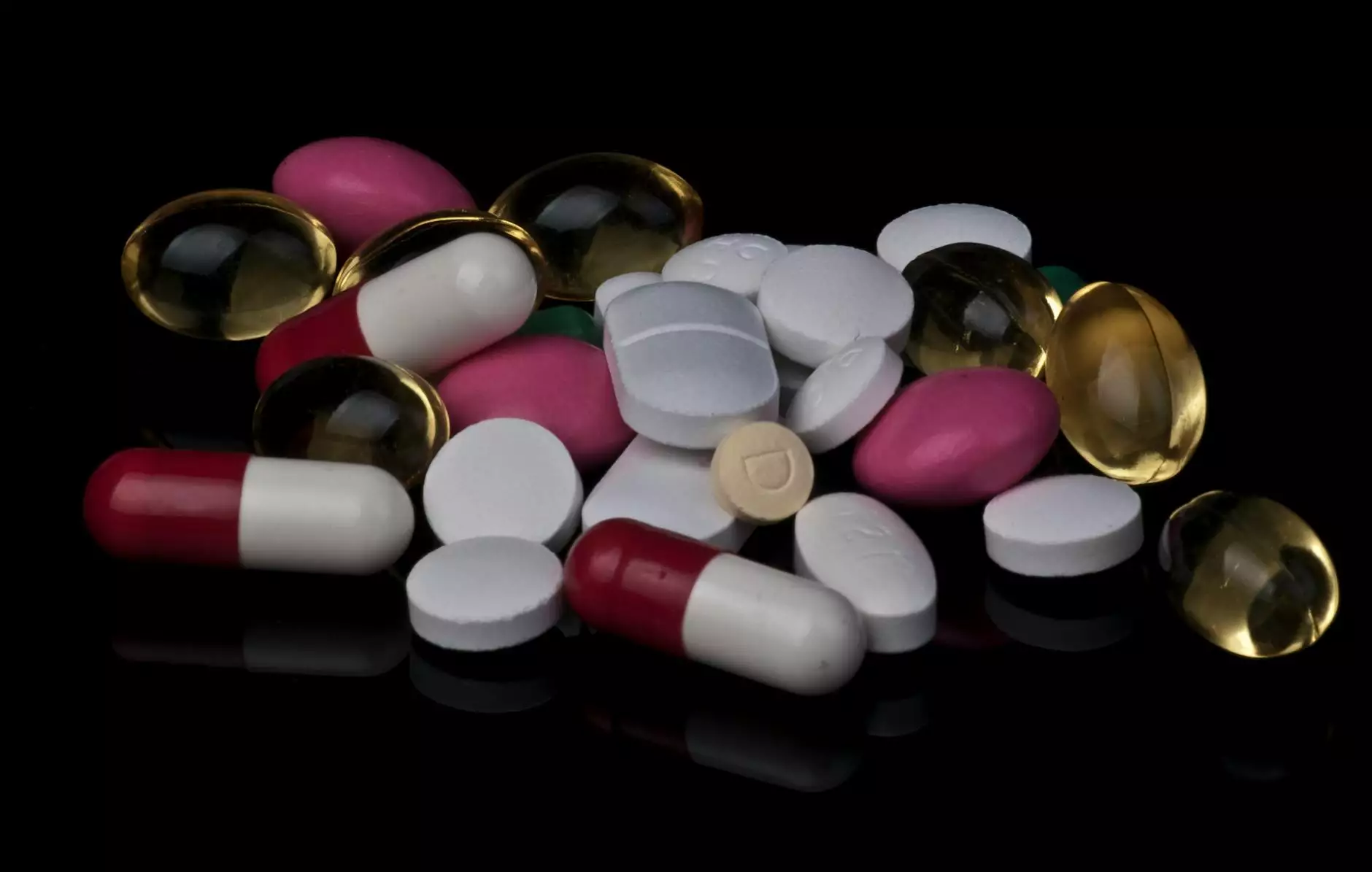The Comprehensive Guide to Pharmacy and Addiction Medicine

In the ever-evolving world of healthcare, the fields of pharmacy and addiction medicine play a crucial role in informing patients and healthcare providers alike about effective treatments and management strategies for addiction. This article aims to provide an in-depth analysis of these intertwined fields, highlighting their significance, outlining treatment options, and discussing how they contribute to recovery processes.
Understanding the Role of Pharmacy in Addiction Medicine
Pharmacy serves as a cornerstone in the management of addiction, delivering essential medications to support recovery and alleviate withdrawal symptoms. It provides not only the medications required but also a wealth of knowledge regarding their usage, potential side effects, and interactions with other drugs.
Types of Medications Used in Addiction Medicine
There are several classes of medications commonly used in the treatment of addiction. These include:
- Opioid Agonists: Medications such as Methadone and Buprenorphine help individuals manage opioid dependence by reducing cravings and withdrawal symptoms.
- Opioid Antagonists: Naltrexone is a crucial medication that blocks the effects of opioids, reducing cravings and the risk of relapse.
- Alcohol Dependence Medications: Disulfiram, Acamprosate, and Naltrexone also play critical roles in helping individuals overcome alcohol dependency.
- Smoking Cessation Aids: Products like Bupropion and Varenicline provide support for those looking to quit smoking.
The Importance of Personalized Treatment Plans
Effective treatment in addiction medicine is not one-size-fits-all. Patients often respond differently to various medications and therapies; therefore, crafting personalized treatment plans that consider the unique circumstances and needs of each patient is vital. This personalized approach enhances the likelihood of successful recovery.
Factors Influencing Treatment Success
Several factors can influence the success of addiction treatment, including:
- Co-occurring Mental Health Disorders: Addressing any underlying mental health issues is crucial for a holistic recovery approach.
- Support Systems: The presence of a supportive family or community can significantly improve recovery outcomes.
- Duration of Treatment: Longer treatment durations often correlate with better chances of success.
Integrating Pharmacy Services into Addiction Treatment Programs
Pharmacy services can be integrated into addiction treatment through several initiatives:
- Medication Therapy Management (MTM): Pharmacists can work alongside healthcare teams to ensure patients are on the correct medication regimens, optimizing therapy outcomes.
- Patient Education: Providing patients with information on medications, their purpose, and potential side effects is essential for informed decision-making.
- Counseling and Support: Pharmacists can provide counseling support, offering guidance on managing cravings and coping strategies for patients in recovery.
The Challenges Facing Healthcare Providers in Addiction Medicine
Despite the essential role of pharmacy in addiction medicine, many challenges persist:
- Stigma: The stigma surrounding addiction can deter individuals from seeking help and accessing necessary treatments.
- Access to Services: In some regions, access to addiction services, including pharmacies offering specialized risk medication, is limited.
- Regulatory Barriers: Regulatory constraints can hinder pharmacists’ ability to provide necessary services related to addiction treatment.
Staying Up-to-Date on Best Practices
Healthcare professionals, including pharmacists, must continually update their knowledge of best practices in addiction medicine. Resources for ongoing education include:
- Conferences: Attending specialty conferences focused on addiction medicine and pharmacy.
- Continuing Education Courses: Enrolling in programs that focus on the latest research and treatment methods in addiction.
- Professional Organizations: Joining organizations dedicated to addiction medicine and pharmacy can provide access to a wealth of resources and networking opportunities.
The Role of Telepharmacy in Addiction Medicine
Telepharmacy has emerged as a critical tool in expanding access to addiction treatments, especially in rural or underserved areas. By utilizing technology, pharmacists can:
- Provide Remote Consultations: Patients can receive guidance and medication management without the need to travel.
- Monitor Medication Adherence: Pharmacies can set up systems to monitor patient adherence remotely, ensuring they stay on track with their recovery plans.
- Offer Education and Support: Virtual platforms allow for continued patient education and counseling, making it easier for patients to receive support when needed.
Success Stories: Overcoming Addiction
Numerous individuals have successfully navigated their journeys through addiction, aided by the combined efforts of pharmacies and addiction medicine professionals. Some common elements in these success stories include:
- A Comprehensive Approach: Many success stories reflect the integration of various treatment modalities, including medication-assisted treatment (MAT), counseling, and peer support.
- A Strong Support Network: Whether through family, friends, or support groups, having a solid support system can bolster an individual's resolve to recover.
- Long-term Commitment: Recovery from addiction is often a long journey requiring ongoing support and a commitment to personal and behavioral change.
Conclusion: The Future of Pharmacy and Addiction Medicine
The fields of pharmacy and addiction medicine are pivotal in shaping the future of addiction treatment. As understanding and approaches continue to evolve, the collaboration between pharmacists, physicians, and patients will be increasingly critical in combating the addiction epidemic. By focusing on personalized treatment, integrating services, and addressing barriers to care, we can pave the way for a healthier society.
To explore more about the intersection of Pharmacy and Addiction Medicine, and to access a wealth of resources, visit https://alprazolam-xanax.com.









